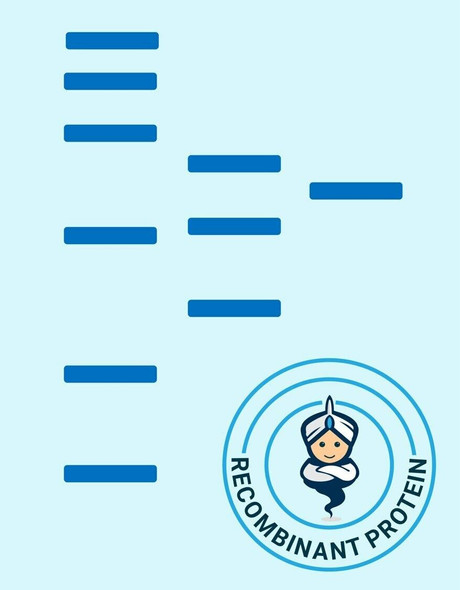CD1A Antibody (PACO15963)
- SKU:
- PACO15963
- Product type:
- Antibody
- Reactivity:
- Human
- Host Species:
- Rabbit
- Isotype:
- IgG
- Application:
- ELISA
- Application:
- WB
- Antibody type:
- Polyclonal
- Conjugation:
- Unconjugated
Frequently bought together:
Description
| Antibody Name: | CD1A Antibody (PACO15963) |
| Antibody SKU: | PACO15963 |
| Size: | 50ul |
| Host Species: | Rabbit |
| Tested Applications: | ELISA, WB |
| Recommended Dilutions: | ELISA:1:2000-1:5000, WB:1:500-1:2000 |
| Species Reactivity: | Human |
| Immunogen: | Fusion protein of human CD1A |
| Form: | Liquid |
| Storage Buffer: | -20°C, pH7.4 PBS, 0.05% NaN3, 40% Glycerol |
| Purification Method: | Antigen affinity purification |
| Clonality: | Polyclonal |
| Isotype: | IgG |
| Conjugate: | Non-conjugated |
 | Gel: 10%SDS-PAGE, Lysate: 40 μg, Lane: Jurkat cells, Primary antibody: PACO15963(CD1A Antibody) at dilution 1/550, Secondary antibody: Goat anti rabbit IgG at 1/8000 dilution, Exposure time: 1 minute. |
| Background: | This gene encodes a member of the CD1 family of transmembrane glycoproteins, which are structurally related to the major histocompatibility complex (MHC) proteins and form heterodimers with beta-2-microglobulin. The CD1 proteins mediate the presentation of primarily lipid and glycolipid antigens of self or microbial origin to T cells. The human genome contains five CD1 family genes organized in a cluster on chromosome 1. The CD1 family members are thought to differ in their cellular localization and specificity for particular lipid ligands. The protein encoded by this gene localizes to the plasma membrane and to recycling vesicles of the early endocytic system. Alternatively spliced transcript variants have been observed, but their biological validity has not been determined. |
| Synonyms: | CD1a molecule |
| UniProt Protein Function: | Antigen-presenting protein that binds self and non-self lipid and glycolipid antigens and presents them to T-cell receptors on natural killer T-cells. |
| NCBI Summary: | This gene encodes a member of the CD1 family of transmembrane glycoproteins, which are structurally related to the major histocompatibility complex (MHC) proteins and form heterodimers with beta-2-microglobulin. The CD1 proteins mediate the presentation of primarily lipid and glycolipid antigens of self or microbial origin to T cells. The human genome contains five CD1 family genes organized in a cluster on chromosome 1. The CD1 family members are thought to differ in their cellular localization and specificity for particular lipid ligands. The protein encoded by this gene localizes to the plasma membrane and to recycling vesicles of the early endocytic system. Alternative splicing results in multiple transcript variants. [provided by RefSeq, Mar 2016] |
| UniProt Code: | P06126 |
| NCBI GenInfo Identifier: | 288558852 |
| NCBI Gene ID: | 909 |
| NCBI Accession: | P06126.4 |
| UniProt Related Accession: | P06126 |
| Molecular Weight: | |
| NCBI Full Name: | T-cell surface glycoprotein CD1a |
| NCBI Synonym Full Names: | CD1a molecule |
| NCBI Official Symbol: | CD1A |
| NCBI Official Synonym Symbols: | R4; T6; CD1; FCB6; HTA1 |
| NCBI Protein Information: | T-cell surface glycoprotein CD1a |
| UniProt Protein Name: | T-cell surface glycoprotein CD1a |
| UniProt Synonym Protein Names: | T-cell surface antigen T6/Leu-6; hTa1 thymocyte antigen; CD_antigen: CD1a |
| Protein Family: | CD109 antigen |
| UniProt Gene Name: | CD1A |
| Secondary Antibody |
| Anti-HRP Goat Anti-Rabbit IgG (H+L) Antibody (CABS014) |
| Recommended Products |
| Anti-FITC Goat Anti-Rabbit IgG (H+L) Antibody (CABS011) |
| Anti-HRP-conjugated Beta Actin Antibody (CABC028) |







